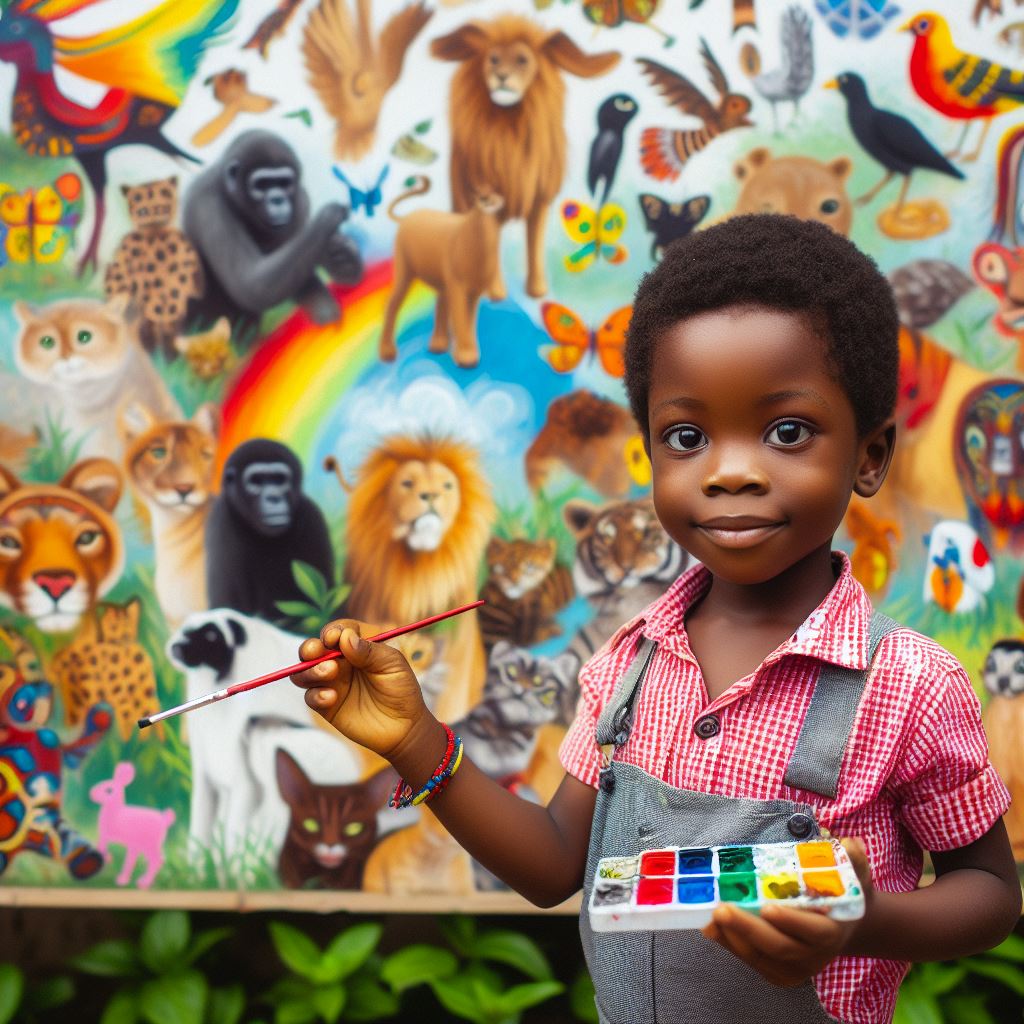Introduction
African and Asian cultural exchange programs involve the sharing of traditions, language, arts, and customs between the two continents. These programs are essential for fostering mutual understanding and cooperation among African and Asian countries.
By participating in cultural exchange programs, individuals from different backgrounds can gain a deeper appreciation and respect for each other’s heritage.
This helps break down stereotypes and promotes cross-cultural dialogue and collaboration.
Experiencing different cultural perspectives through exchange programs in African and Asian studies can also lead to the development of new ideas and innovations.
It allows for the exchange of knowledge and skills that can benefit both regions in various fields such as education, technology, and business.
Moreover, cultural exchange programs play a significant role in strengthening diplomatic ties between African and Asian countries.
By building personal connections and fostering goodwill, these programs create a foundation for enhanced political and economic cooperation.
In essence, cultural exchange programs in African and Asian studies are vital for building bridges between diverse communities and promoting a sense of global citizenship.
They serve as a platform for celebrating diversity, fostering peace, and fostering mutual respect among nations.
Historical background
Mention of Historical Ties Between Africa and Asia
Africa and Asia share a rich history of interactions and mutual influence.
Trade routes, such as the Silk Road, connected African and Asian civilizations, facilitating the exchange of goods, ideas, and cultures.
Early interactions between Africa and Asia involved trade in spices, textiles, and precious metals.
These exchanges laid the foundation for deeper cultural and social ties between the two continents.
During the medieval period, African and Asian scholars exchanged knowledge and ideas.
Muslim traders and scholars traveled between Africa and Asia, sharing scientific, medical, and philosophical insights.
These early exchanges significantly impacted the development of both regions’ intellectual and cultural landscapes.
The colonial era brought a different kind of interaction between Africa and Asia.
European colonial powers often controlled territories in both continents, leading to forced migrations and the establishment of diasporic communities.
These movements created unique cultural blends and hybrid identities, further intertwining African and Asian histories.
Influence of Cultural Exchange Programs on Shaping Perceptions and Relationships Between the Two Continents
In the modern era, cultural exchange programs play a crucial role in shaping perceptions and relationships between Africa and Asia.
These programs enable students, researchers, and professionals to experience and understand each other’s cultures firsthand.
Participants in cultural exchange programs gain valuable insights into different ways of life, fostering mutual respect and appreciation.
Cultural exchange programs have profoundly influenced academic studies in African and Asian contexts.
Scholars from both continents collaborate on research projects, contributing to a more nuanced understanding of global issues.
These collaborations often lead to groundbreaking discoveries and innovations that benefit both regions.
Students participating in cultural exchange programs between Africa and Asia develop a broader perspective on global affairs.
They learn to appreciate the complexity and diversity of different cultures, which helps combat stereotypes and prejudices.
This understanding fosters a more inclusive and tolerant global society.
Moreover, cultural exchange programs encourage the preservation and promotion of cultural heritage.
Participants often engage in activities that highlight traditional art, music, dance, and cuisine.
These experiences help preserve cultural practices and promote their significance on a global stage.
Governments and educational institutions in Africa and Asia recognize the importance of cultural exchange programs.
They invest in initiatives that facilitate student and scholar exchanges, joint research projects, and cultural immersion programs.
These efforts strengthen diplomatic and economic ties between the two continents.
Cultural exchange programs also enhance language skills and intercultural communication.
Participants learn new languages and improve their ability to communicate across cultural boundaries.
This skill is increasingly valuable in our interconnected world, where effective communication is essential for collaboration and problem-solving.
Read: Day in the Life of a Nigerian Beauty Therapist
Types of cultural exchange programs
Student exchange programs between universities in Africa and Asia enhance intercultural understanding and foster cooperation. These programs immerse individuals in diverse cultures, traditions, and practices, boosting cross-cultural awareness and appreciation.
Student Exchange Initiatives:
- Students study abroad and experience new academic environments.
- They gain insights into different educational systems.
- Participants develop intercultural communication skills and build lasting friendships.
Cultural Immersion Experiences:
- Individuals live with local families and participate in traditional ceremonies.
- They engage in community activities.
- Participants develop empathy and respect for diverse ways of life.
Artist Residencies and Cultural Festivals:
- Artists, musicians, and performers showcase their talents.
- They collaborate with colleagues from different backgrounds.
- Participants share artistic expressions and learn from each other.
- New works reflect the richness and diversity of African and Asian cultures.
Cultural exchange programs in African and Asian studies offer valuable opportunities for exploration, learning, and connection.
These programs enrich personal and professional lives, promoting an inclusive and harmonious global community. By participating, individuals challenge their assumptions and develop a deeper understanding of other cultures.
As we navigate an interconnected world, cultural exchange programs celebrate diversity and build bridges between people.
Read: Cosmetology and Beauty Therapy Scholarships in Nigeria
Benefits of cultural exchange programs
Cultural exchange programs foster cross-cultural relationships and friendships.
These programs enable interactions with people from diverse cultural backgrounds, promoting mutual understanding and tolerance.
Participants build lasting friendships and create networks of support and collaboration that transcend geographical boundaries.
These programs also promote cultural awareness and appreciation.
Participants gain a deeper understanding of different cultures, traditions, and customs. Immersing themselves in new cultural environments helps participants appreciate the world’s diversity and richness.
This increased awareness combats stereotypes and prejudices, fostering a more inclusive society.
Cultural exchange programs enhance language skills and global perspectives.
Participants improve their linguistic abilities by living and communicating in a foreign language.
They also develop a deeper understanding of language nuances. Exposure to different cultural perspectives broadens one’s worldview, fostering a more inclusive approach to global issues.
These programs build bridges between communities and encourage dialogue.
They bring together individuals from diverse cultural backgrounds, creating opportunities for meaningful interactions and discussions.
Through dialogue and exchange, participants address common challenges, share experiences, and work towards common goals. This leads to increased cooperation and understanding between communities.
Basically, cultural exchange programs offer numerous benefits:
- Foster cross-cultural relationships and friendships.
- Promote cultural awareness and appreciation.
- Enhance language skills and global perspectives.
- Build bridges between communities and encourage dialogue.
By participating in these programs, individuals gain valuable insights into different cultures. They develop a deeper understanding of global issues and contribute to a more interconnected and harmonious world.
Read: How to Open a Beauty Salon in Nigeria: Step-by-Step
Challenges and barriers
Cultural exchange programs in African and Asian studies immerse individuals in these regions’ rich cultural heritage. However, participants face several challenges.
Key Challenges
- Language Barriers: Effective communication is crucial, but different languages can hinder idea exchange and relationship building.
- Cultural Misunderstandings or Stereotypes: Each culture has unique norms and values. Misinterpretations can occur when individuals from different backgrounds interact.
- Financial Constraints: Travel and accommodation expenses are high, deterring those from lower-income backgrounds.
Despite these barriers, these programs offer valuable learning experiences. Participants gain personal growth, expanded perspectives, and lasting connections. Organizations can enhance inclusivity and accessibility by addressing these challenges:
Solutions
- Address Language Barriers: Implement language courses or provide translation services.
- Foster Cultural Sensitivity and Awareness: Encourage participants to approach interactions with an open mind and willingness to learn.
- Explore Funding Options: Seek financial assistance or scholarships for those in need.
Cultural exchange programs in African and Asian studies remain enriching. By tackling these challenges, organizations can ensure a more inclusive experience for all participants.
Read: Exploring Semiotics in Communication Arts

Success stories and impact
Cultural exchange programs in African and Asian studies have profoundly impacted participants and communities.
Participants share testimonials about how these programs have broadened their horizons, increased cultural awareness, and fostered connections with diverse people.
Many describe the exchanges as life-changing, leading to personal growth and new opportunities.
These programs have spurred various successful collaborations and projects.
By bringing together individuals with different perspectives and expertise, they have catalyzed innovative initiatives in education, arts, and technology. Notable examples include:
- Joint research projects between African and Asian scholars, resulting in groundbreaking discoveries and impactful publications.
- Artistic collaborations that merge traditional and contemporary art forms from both regions.
- Educational initiatives that develop new curricula integrating African and Asian perspectives.
These collaborations enrich academic discourse and foster lasting relationships between institutions and individuals.
Cultural exchange programs also play a vital role in improving cultural diplomacy and international relations between African and Asian countries.
By promoting mutual understanding and respect, these programs help bridge cultural divides and enhance global cooperation.
They challenge stereotypes and misconceptions, paving the way for meaningful dialogue and collaboration.
Participants gain a deeper appreciation for the rich cultural heritage and diversity of both regions, strengthening bonds between African and Asian nations.
In summary, cultural exchange programs in African and Asian studies have yielded remarkable success stories.
They foster collaborations, promote cultural diplomacy, and strengthen international relations. These programs play a crucial role in building a more interconnected and harmonious world.
Future prospects
- Potential for expansion and diversification of cultural exchange programs.
- Importance of continued support and funding for such initiatives.
- Role of technology in facilitating virtual exchanges and digital collaborations.
Cultural exchange programs in African and Asian studies have immense potential for growth and development in the future.
These programs can expand to include a wider range of countries and regions, allowing for greater diversity and cross-cultural interaction.
This diversity can lead to a richer and more comprehensive understanding of different cultural practices, traditions, and perspectives.
Continued support and funding for cultural exchange programs are essential for their sustainability and success.
Without adequate resources, these programs may struggle to maintain their operations and reach a wide audience.
Governments, institutions, and organizations should recognize the value of cultural exchange programs and allocate resources to ensure their continued growth and impact.
Technology plays a crucial role in facilitating virtual exchanges and digital collaborations in the field of cultural studies.
Virtual platforms, such as video conferencing and online forums, allow participants from different locations to interact and engage in cultural exchange activities.
These digital tools help bridge the gap between individuals and communities, fostering meaningful connections and understanding across borders.
In a nutshell, the future prospects for cultural exchange programs in African and Asian studies are bright.
With the potential for expansion and diversification, continued support and funding, and the role of technology in facilitating virtual exchanges, these programs have the opportunity to make a lasting impact on global understanding and cooperation.
Conclusion
Recap of the significance of cultural exchange programs in African and Asian studies
Cultural exchange programs play a vital role in fostering mutual understanding, promoting diversity, and enhancing cross-cultural awareness in the realms of African and Asian studies.
Through these programs, individuals are able to immerse themselves in different cultures, learn new languages, and gain firsthand experience of the traditions and customs of diverse communities.
Moreover, cultural exchange programs facilitate academic collaborations, research opportunities, and knowledge-sharing initiatives between scholars, practitioners, and institutions from Africa and Asia.
By engaging in cultural exchange programs, participants can broaden their global perspectives, challenge preconceived notions, and develop a more nuanced understanding of the complexities of the world.
Call to action for individuals and institutions to actively participate in and support cultural exchange initiatives for a more interconnected global community
It is imperative for individuals and institutions to recognize the value of cultural exchange programs and actively contribute to their success through participation, funding, and advocacy.
By supporting cultural exchange initiatives, we can bridge cultural divides, promote peace and cooperation, and build a more interconnected global community based on mutual respect and understanding.
Let’s embrace cultural exchange as a means to celebrate diversity, foster empathy, and create a more inclusive world where people from all walks of life can come together to learn, grow, and thrive.




